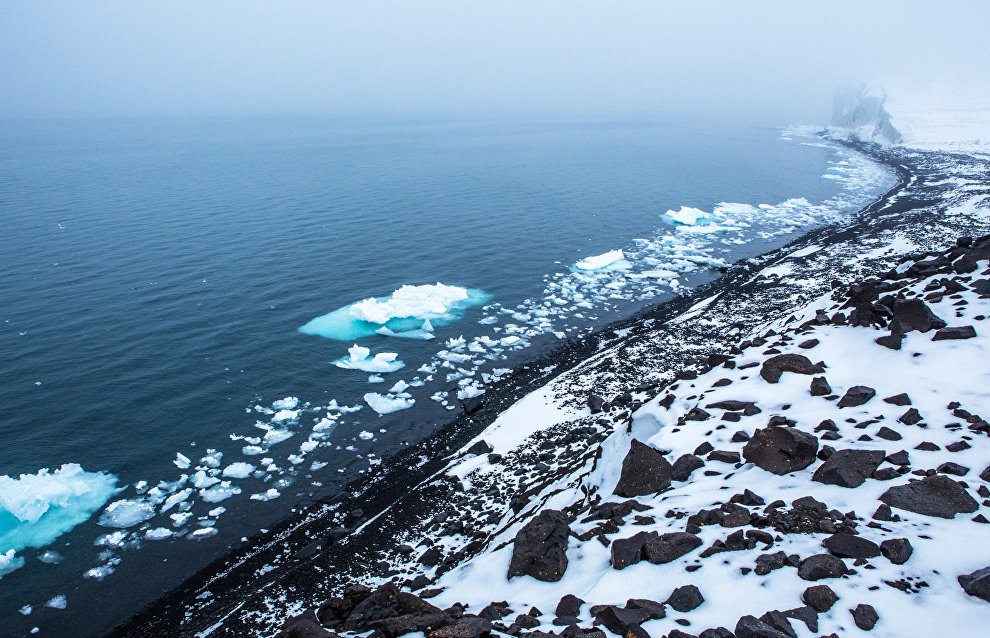Two surviving Baldwin expedition bases could become submerged
The remains of two camps, used by members of Evelyn Baldwin's Arctic expedition to Franz Josef Land Archipelago, could become submerged because of the melting layers of permafrost, Denis Krets, commander of the Russian Northern Fleet's expeditionary unit, told journalists at a news conference on Tuesday. The participants discussed the results of a comprehensive expedition involving the Northern Fleet and the Russian Geographical Society to the above-mentioned islands.
"The sea together with the elements continue to destroy the shoreline where the expedition's surviving camp is located… Back in 1899, members of Evelyn Baldwin's expedition established two camps on Cape Pology, Alger Island, and near to Cape Ovchinnikov on Greely Island. Slowly shifting and melting glaciers are exposing the layers of permafrost and facilitating substantial erosion and decay, and all this [depot remains] is slipping toward the sea," Krets pointed out.
He also noted that the melting ice formations made it possible to discover new historical-cultural artifacts.
The Northern Fleet and the Russian Geographical Society launched their one-month joint expedition in August 2019. Expedition members retraced the routes of Julius von Payer who discovered Cape Fligeli, the northernmost point of Eurasia, on April 12, 1874, Frederick Jackson who studied Alexandra Land Island for the first time in 1898, and Evelyn Baldwin who 120 years ago discovered Graham Bell Island on May 2, 1899.
